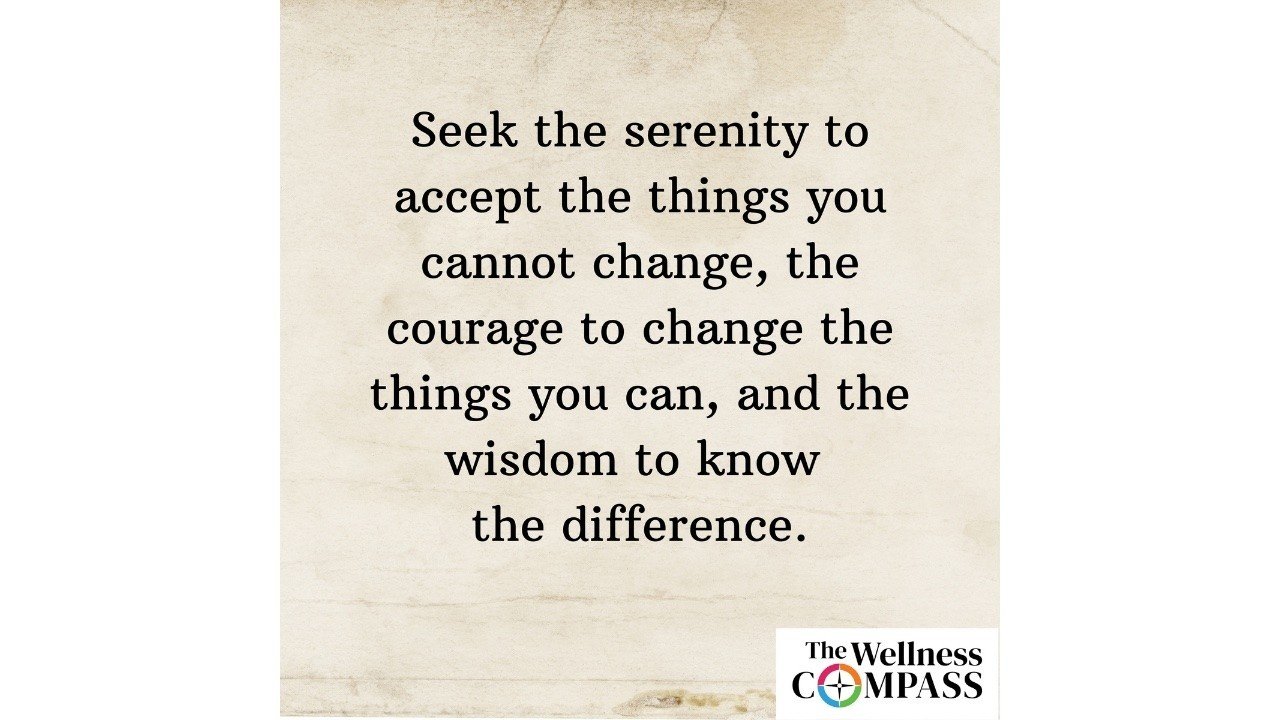We complete our six-part series on understanding the process of growth and change by reflecting on a paraphrase of the opening words of the Serenity Prayer, written by Reinhold Niebuhr.
"Seek the serenity to accept the things you cannot change,
the courage to change the things you can,
and the wisdom to know the difference."
The first five columns in this series (and accompanying podcast episodes) have been focused more on "the courage to change the things you can." This final column focuses more on the first part of the prayer, "the serenity to accept the things you cannot change."
One of the most influential spiritual teachers of our day passed away a few weeks ago. Thich Nhat Hanh wrote over thirty books about the practices of love, peace, and mindfulness. He is perhaps the person most responsible for introducing the benefits of mindfulness to the West, having first come and taught in the United States in the 1960s. He was a close friend of Martin Luther King and Thomas Merton. He taught and modeled the principles of love, peace, and serenity to all, never wanting to convert anyone to his Buddhist faith, but always wanting to help people live more fully the teachings of their own faith.
For us, Thich Nhat Hahn's particular gift was his ability to fully acknowledge the pain and suffering that exists in the world and yet, at the same time, speak authentic words of how love, hope, and peace in the face of suffering. His writings articulate a deeply spiritual path to finding serenity in the face of things we cannot change. Yet it is important to add that, like Martin Luther King, he was a tireless advocate for changing the things that we can change, such as the societal conditions that add to injustice, conflict, and suffering.
The pandemic has affected each of us differently. Some have experienced minimal loss and disruption, while others have experienced unfathomable stress and suffering. We all have had plenty of opportunities to practice finding serenity in the face of things we cannot change. An old joke says, "I asked God to give more patience and what I got was more opportunities to practice it!" Like this joke, we have all been given more than enough opportunities to practice and develop the spiritual practices of letting go and finding serenity amidst the many challenges we have faced over the last two years, particularly the ones we could not or cannot change.
As we complete our six-part series, we want to remember that opportunities to change and grow come in many forms. Sometimes they come as things we can change, but require our courage and commitment. Other times they present as opportunities to find the serenity to accept the things we cannot change. And always it involves developing the wisdom to know the difference.
We close with a quote from Thich Nhat Hanh and our usual "Making It Personal" questions.
"Hope is important because it can make the present moment less difficult to bear. If we believe that tomorrow will be better, we can bear a hardship today," Peace Is Every Step: The Path of Mindfulness in Everyday Life.
Making It Personal:
What has helped you find peace when facing challenges that seem unchangeable in the past?
What challenge or suffering are you experiencing right now that falls into the category of "things you cannot change"? What is helping you find serenity in the midst of that challenge?
Is there something more you would like to do to enhance your capacity to accept things you cannot change right now?





